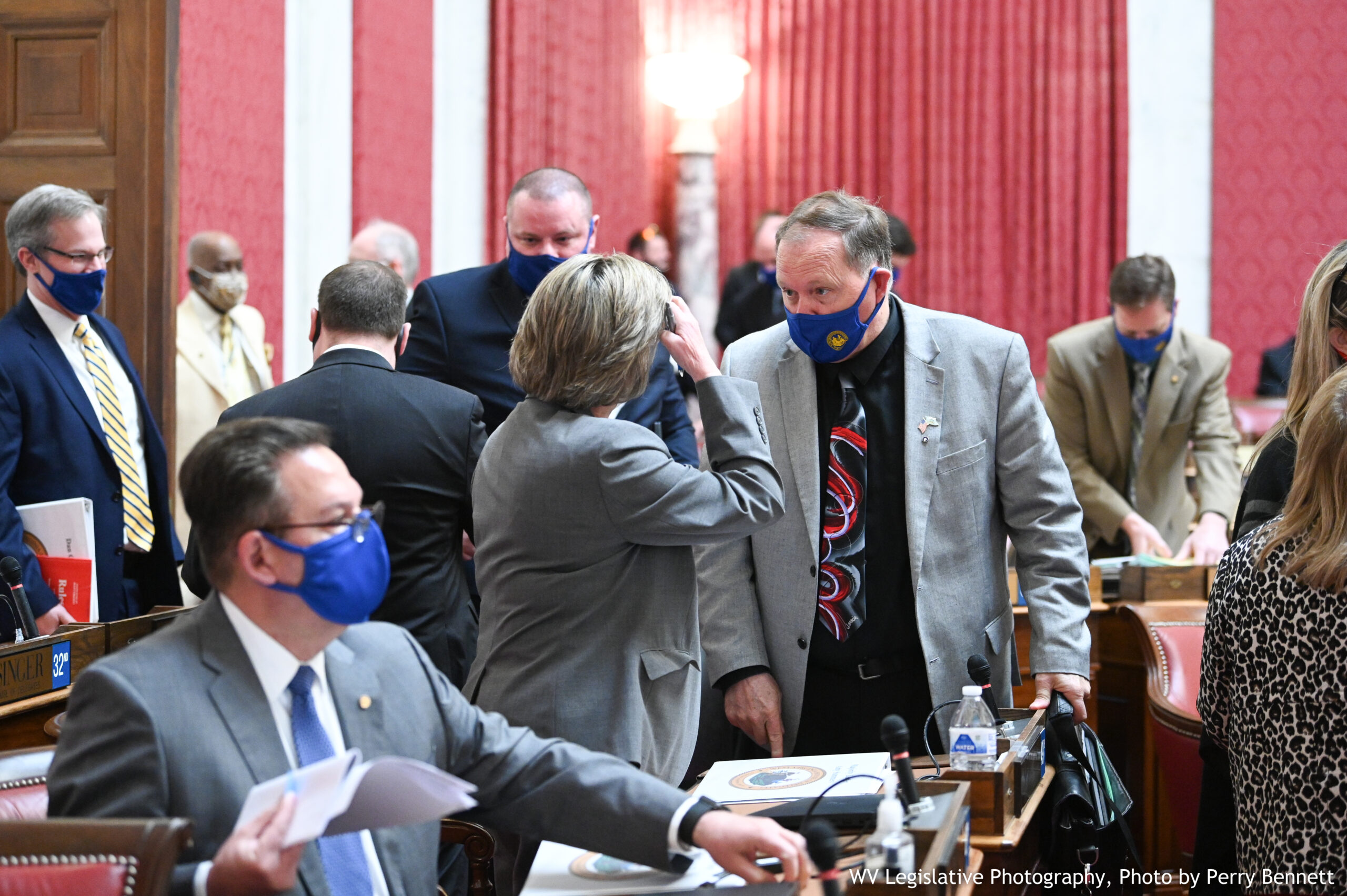MORGANTOWN – The House of Delegates barely passed a bill on Tuesday allowing school boards to post financial statements online – over objections the state’s spotty broadband will disenfranchise many residents.
The House also approved a Health Committee amendment to the bill requiring drug testing for welfare applicants that extends the program another four years – over objections the program hasn’t accomplished much.
SB 651 allows county school boards the option to post their financial statements on their websites. Before a board can move its statements online, it must hold a public hearing. And after publishing its first statement online, it must provide public notice of the availability of the website in a newspaper once a week for two weeks. Statements published online must include the name and pay of every school employee. It would take effect for statements beginning Fiscal Year 2024, which begins July 1, 2023.
Education chair Joe Ellington, R-Mercer, said the bill came at the request of the West Virginia Association of School Business Officials.
Delegate John Doyle, D-Jefferson, was one of several who addressed the broadband problem.
“Once again we seem to think our state is up to snuff when it comes to connectivity,” he said. He thinks boards should be required to do both – publish online and in print. It may cost boards a bit more but it’s worth it “when the consequence of not expending that money is an uninformed citizenry.”
Delegate Cody Thompson, D-Randolph, said the original purpose of the bill was to allow boards an additional 30 days to prepare their statements for print because some had trouble doing so within the prescribed 90 days, but more was added.
He objected to posting the names and salaries of the employees because they work for the counties, not the state, and no other county employee salaries are published in that manner. He was one of a few who suggested the requirement be extended to employees of private schools that will receive Hope Scholarship or other public funds.
Delegates Ed Evans, R-McDowell, and Brent Boggs, D-Braxton, were among those who argued that many small local newspapers rely on legal ads to remain afloat and some may close if they lose this revenue – and many people rely on those newspapers to keep informed of local government activity.
“We’re inflicting a thousand paper cuts on our newspapers,” Boggs said.
Delegate Daniel Linville, R-Cabell, stood up for the bill saying the web posting is just an option and requires a public hearing. Newspapers aren’t free but people can access the internet at libraries or on mobile phones. The Google and Facebook monopolies have harmed newspaper revenue more than anything, and they don’t pay taxes.
Ellington added that those who can’t access the internet can request a hard copy from the school board.
The vote was 52-48. All local Democrats voted no; all local Republicans voted yes except Majority Leader Amy Summers, R-Taylor.
TANF bill
The bill to require drug testing for Temporary Assistance for Needy Families (TANF) applicants is SB 387. The pilot program began in 2017 and requires TANF applicants to fill out a drug screening form. Those who fail the screening must get tested, and those who test positive must undergo a treatment program to retain their benefits.
The three-year pilot began in 2017; the Senate version of the bill would extend it through Dec. 31, 2022. It was on Second reading, the amendment stage, on Tuesday and members adopted, in a divided voice vote, the House Health Committee amendment extending the pilot through Dec. 31, 2026.
Delegate Mike Pushkin, D-Kanawha, offered two failed additional amendments. One, which also failed in committee, would have deleted the requirement to test for marijuana. The other, which was ruled not germane to the bill, would have required drug testing for Hope Scholarship applicant families.
Delegate Barbara Evans Fleischauer, D-Monongalia, commented, “This is a failed program. … This is an attempt to humiliate people who are temporarily in need of our help.” The Senate version was preferable.
The bill is on third reading for passage on Wednesday.
Other House action
Pushkin moved to have SB 590 – the Senate bill to allow edible forms of medical cannabis, to be incorporated in the state’s 4-year-old and still non-functioning medical cannabis program – discharged from the Health Committee, where it’s idled since March 25, and sent to Judiciary to get onto an agenda.
Summers countered with a motion to table Pushkin’s motion, which prevailed in a 73-27 vote.
The House also amended SJR 4 which, if passed by both houses and approved by the voters, would eliminate a clause from the state Constitution that prohibits the state from granting charters of incorporation to churches and denominations.
A similar clause in Virginia law was ruled unconstitutional in federal court in 2002, and in West Virginia the provision has been ignored since 2003. The House adopted a Judiciary Committee tweak with a further amendment offered by Judiciary chair Moore Capito, R-Kanawha, to set a special election on the amendment for July 24 this year.
Asked why, Capito said they are working to have all the constitutional amendments working through the system up for voter approval on the same day. The special election is expected to cost about $1.5 million.
SJR 4 is on third reading on Wednesday.
On Monday, the Senate passed an amended version of HB 2916, which creates the Semiquincentennial Commission for the celebration of the 250th anniversary of the founding of the United States of America, and sent it to the House for concurrence.
On Wednesday, the House concurred but added further tweaks and bounced it back to the Senate.
TWEET David Beard @dbeardtdp EMAIL dbeard@dominionpost.com




